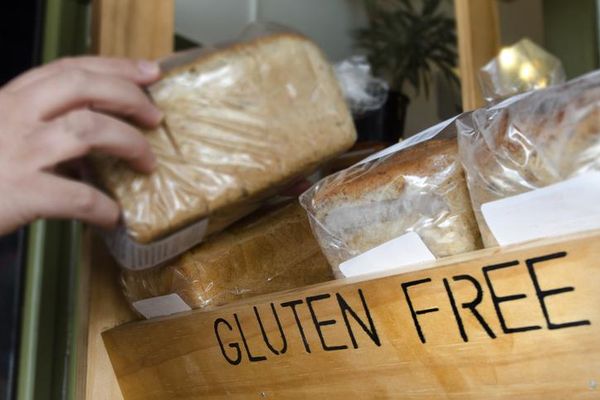It seems that every time I go to the supermarket, I see more and more shelf life devoted to gluten-free products. And it wasn't until recently that I learned what's behind it.
Apparently, the disease is on the rise, particularly in the elderly. Celiac disease was once thought to affect people fairly early in life. Now folks who were able to once tolerate foods with gluten (a type of protein found in wheat, barley and rye) are suddenly being diagnosed in their 60s and 70s. It's not that the diagnosis was missed or hidden before – it's that they are first developing the disease late(r) in life.
Celiac disease is an autoimmune disease that can run in families (more commonly in Caucasians and Hispanics) with a wide array of symptoms including abdominal pain, diarrhea or bloating; even anemia, headache, liver abnormalities, premature osteoporosis, infertility and tingling in the legs and feet. Its symptoms are frequently missed or misunderstood. (Read on for a first-person's account with the disease).
Researchers are not certain what has caused both the rise in celiac disease and the development after a lifetime of the ability to eat gluten without a problem. Some think it could be that grains are now more refined (therefore containing more gluten) than before; it could also be that our total consumption of grains has risen. Another guess is that the composition of the bacteria of our intestines has changed, tricking our immune system differently than in the past.
This Matters> If you have any signs of symptoms, ask your healthcare provider to be tested; usually done with a simple blood test. You're never too old to develop the disease.
Stephanie Stiavetti was 28 when her mysterious symptoms that rendered her practically helpless – and hopeless - led her to a surprising discovery that her diet was the culprit. Below, she shares her story. As I like to say, many times good things come from bad: Due to her diagnosis with celiac, Stephanie, a San Francisco-based food writer and multi-talented woman, was inspired to develop a creative, informative and inspiring blog, Wasabimon. Check it out even if you are not gluten-sensitive - you're bound to be entertained and find many recipes you'll use time and time again.
For 27 years, I ate just like everyone else in the United States. I grew up the Standard American Diet, subsisting wholly on processed foods and convenience meals. My parents never taught me that it was bad to eat this way, and in truth, they probably didn't know. My mom and dad struggled to provide us the little we did have, and cheap food was A-OK in their books since it kept us fed, growing, and to all outward appearances, healthy.
The year I turned 28 I fell mysteriously ill, and no amount of medical attention was helping me. I was sick all the time, and my daily life was a roller coaster of nausea, fatigue, fogginess, and exhaustion. I watched my life slip through my fingers, one day at a time, until I'd resigned to being this way forever. A shell of my former self, barely surviving despite the powerful medications my doctors had prescribed me.
A sheer chance meeting of one of my husband's coworkers changed my life. This new person had a gluten allergy, a condition I'd heard about only vaguely in reference to autistic children. Turns out, a gluten allergy could manifest itself in all sorts of ways: fatigue, dizziness, various digestive disorders and a host of other systemic problems that tend to go misdiagnosed by the medical community.
This information brought a new possibility into my life - could it be that my diet was to blame for all of my problems? Could it really be as simple as that, after a year lost to steroids, emergency transfusions and countless hospital stays? I looked at my face in the mirror, puffy from the lion's share of prednisone I'd been prescribed, and realized: yes, it probably was that simple.
I cut out gluten and went off the steroids. My body got stronger, my moods stabilized and I could suddenly think again. I hadn't realized exactly how much of myself I'd lost until I felt life begin to trickle back into my limbs, like limp balloons slowly expanding with an old spark that I'd almost forgotten existed.
I can't help but wonder if I had these dietary requirements my entire life, or if they developed slowly after years of eating low-quality food. At this point I suppose it doesn't matter. It is what it is.
Want to learn more? Check out these links:
https://www.mayoclinic.org/celiac-disease/
https://www.niddk.nih.gov/health-information/digestive-diseases/celiac-disease
https://www.webmd.com/digestive-disorders/celiac-disease/celiac-disease-symptoms







